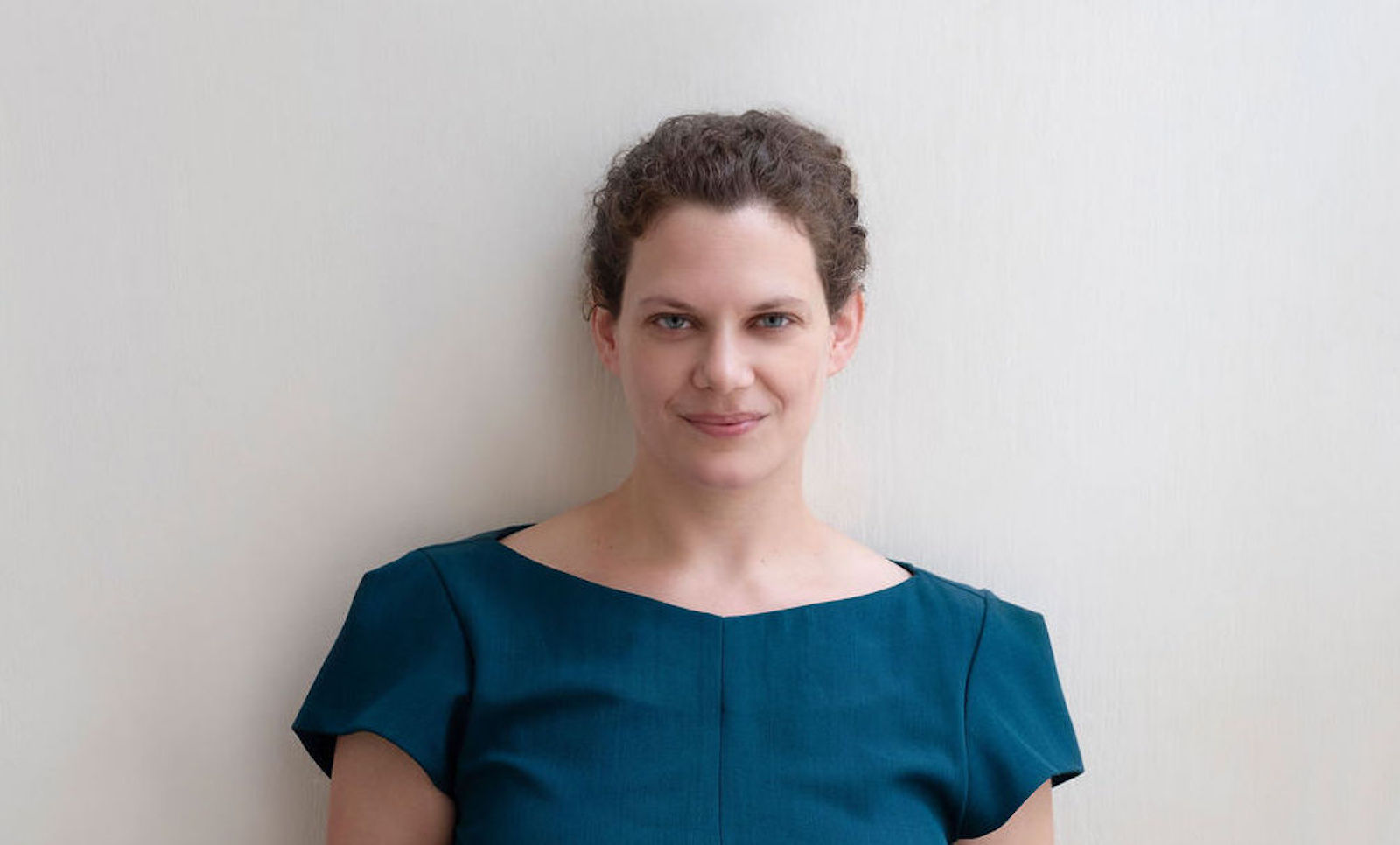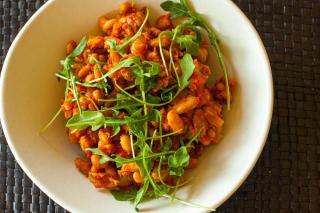Food Historian and Assistant Professor of Arabic Anny Gaul Receives NEH Grant
July 06, 2023

The grant will support her upcoming book “Nile Nightshade” about the rise and role of the tomato in modern Egypt.
By Liz Tracy
With her upcoming book, “Nile Nightshade: Tomatoes and the Making of Modern Egypt,” Assistant Professor of Arabic Anny Gaul is not only exploring the role this umami “New World” fruit has played in Egyptian culture and economy, but she’s also centering the “brilliance” of home cooks. These home cooks are women who, she says, “integrated the tomato in ways that have fundamentally changed what it means for something to taste Egyptian.”
Gaul recently received a National Endowment for the Humanities’ Summer Stipend grant to support her writing over the next two months. Though tomatoes are not native to Egypt, the country is one of the largest producers in the world and consumes most of what it grows. Gaul’s book will also show what the rise of the tomato in Egypt can tell us about major political, economic and social transformations in the everyday lives of Egyptians.
Before Gaul focused her work as a food historian, she fell in love with the Arabic language and Arab culture. She first lived and worked in Morocco in 2007 and started a food blog, Cooking with Gaul, to share some of the local foods she was learning to cook. The blog has evolved with her research interests, and today she often blogs about Egyptian recipes from mid-century cookbooks written by women. “I think of cooking as one of my research methods: blogging helps me document what I’m doing in photographs and writing, and then I can reflect on it,” she says.
Home kitchens are often the locus of Gaul’s research. Just as the tomato was more recently introduced to Egypt and quickly became a staple, the concept of the modern kitchen—one with a fuel source and electricity—is quite new. “The home kitchen becomes this great way to study big picture trends like modernization, the role of the state and its limits, changing gender roles and the idea of a middle class housewife, and so on.”
What led her to focus on tomatoes in particular was an encounter at the National Archives of Egypt. She met with a group of archivists—three men and a woman—who helped her brainstorm the best sources for her research.
“You know,” the woman said, “if you want to understand the Egyptian kitchen, you should not waste your time in the archives. You need to understand tasbika.” Tasbika refers to a home cooking technique of slow cooking meat and vegetables in a tomato sauce — you won’t find it in cookbooks or restaurants. The men in the room instantly agreed. “It says something about gender, and how particularly with home cooking, women are considered this authority that men will defer to,” Gaul reflects.
Gaul joined the Arabic program, housed in the School of Languages, Literatures, and Cultures (SLLC), in 2020. She teaches courses in English and Arabic on the culture, gender history, literature and food of the Arabophone world. Her course on food cultures in the global Middle East introduces students to North Africa and the Arab world through food—including addressing colonialism, nationalism and the diaspora. Students learn how to use cookbooks, recipes, menus and magazines as sources for scholarly research.
Gaul was the Individual Studies Program (IVSP) thesis advisor and faculty sponsor of Caterina Ieronimo, who graduated with a dual degree in gender and sexual identity in Arab migration (through IVSP) in 2021 and Arabic studies in 2023 as part of the Arabic Flagship Program. “I learned so much about how food can be permeated by the effects of colonialism and the redrawing of borders that the Southwest Asia and North Africa (SWANA) region has experienced so much of,” Ieronimo says. “And about how this food in turn shapes ideas of cultural ownership and national identity.”
Ieronimo says Gaul’s courses sparked her curiosity about the stories behind the food she eats and encouraged her to cast a wider net in her own research.
Gaul had to cast a wider net when, due to COVID-19 travel barriers, she was unable to write the book she originally planned—a comparative history of the home kitchen in Egypt and Morocco. She soon saw she had enough research and field work on tomatoes to start on her current book, “Nile Nightshade.” Gaul was able to work on this international topic locally when she discovered that the National Agriculture Library in Beltsville, Maryland, has a large international holding, including sources on Arab agriculture.
Eventually, thanks to a ARHU Junior Faculty Summer Fellowship, Gaul was able to again visit Egypt to speak with food scholars and gather additional sources last year. Gaul’s project is also supported through an ISRCA award in Spring 2024 and leave provided through SLLC in Fall 2023. She hopes to complete the book next spring.
Photo of Gaul by Nicole McConville. Photo of tasbikassoulet, courtesy of Gaul.


